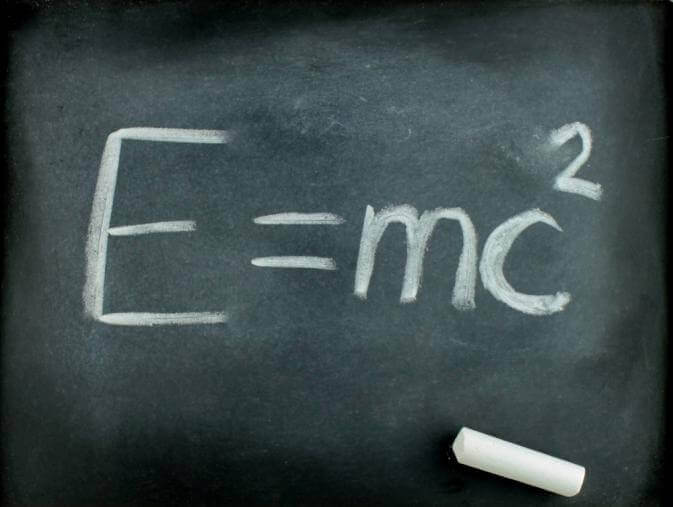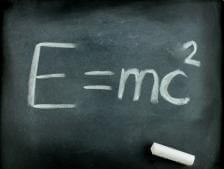What Are Variables? Part 1
How do variables work? How do you work with variables? And what’s up with x? Math Dude has the scoop on variables, algebra, and more.
Now that we’ve tackled the big question, What Is Algebra?, we’re ready to start talking about algebra’s finer points. Last time we learned that algebra is really just arithmetic…with variables, which means that variables are going to play a key role in our story. So over the next few weeks we’re going to take a closer look at exactly what variables are, what you can do with them, how to name them, and we’ll also talk about why that little letter x has become so famous.
Sponsor: This podcast is brought to you by Betterment.com. Betterment offers users an easy way to invest. No prior investing experience is required. Users choose how to allocate their money between two pre-set baskets—a stock basket and a bond basket. Signing up takes less than 5 minutes, and money can be added or withdrawn at any time without a fee. Users who sign up at betterment mathdude will receive a $25 account bonus as long as their initial deposit is $250 or more.
How to Name Variables
The first thing we need to do is pick a character for our story. In other words, we need to choose a symbol for the variable we’re going to talk about. As you may know, the letter x is used all the time in and, of course, it’d work just fine for us here, too. But just for fun we’re going to be adventurous and instead use a symbol that looks like a box as our variable of choice for the next few weeks.
Why a box? Is this symbol special in some way? Not at all! The truth is that we could have picked absolutely any symbol we could think of—or even one that we couldn’t think of (if we could only think of it). Why do we have such tremendous freedom when choosing variable names? Because the symbol doesn’t actually matter! After all, it’s just a symbol. If the symbol we used to represent the idea of the quantity 2 had since time immemorial actually been the numeral “3” and vice versa, math wouldn’t be any different because the values of the numbers would have the same underlying meaning. All of which is to say that you are free to use whatever variable names you like.
What’s the Best Name for a Variable?

With that in mind, what might be a good variable name to represent the length of your new sailboat (perhaps you’re calculating if it will fit in your garage)? You could choose anything you want, but I’d say that the letter L might be a good choice since it reminds you of the word “length.” How about a variable to represent the height of the ceiling in your garage (again, to see if the boat will fit)? In that case, the letter H seems like a good choice, right? And how about the weight of your boat (to see if your garage floor will hold it)? By now you’re probably catching on that the letter W is a good choice.
Of course, there’s a bit of tradition when it comes to choosing variable names, too. For example, the variable names x, y, and z, as well as a, b, and c are commonly used as names for generic variables that don’t necessarily represent physical quantities. And, of course, they’re just fine for you to use, too. Just remember that sometimes it’s fun (and useful) to spice things up and use less-generic variable names.
What’s Up With x?
Speaking of generic variable names, have you ever wondered why the letter x is used so often in algebra? Like most things whose origins date back hundreds or thousands of years, nobody knows for sure. But there are some interesting ideas out there.
One explanation is that x is simply easy to write…which was a really big deal back in the day when people were scratching out the written word with feathers and ink. So perhaps that’s the reason. But there’s another interesting possibility. As we’ll see, the main focus of algebra is to solve for the unknown values of objects (aka, variables). As it turns out, the Arabic word for “object” (remember ) is “shei,” which when translated into Greek is “xei.” All it takes from there is one little abbreviation of “xei” down to “x” and, voilà, you’ve got yourself an explanation. Well, maybe…at least it’s an interesting possibility.
Wrap Up
Okay, that’s all the math we have time for today. Now that we know all about naming variables, it’s time to figure out exactly how variables work and how we can work with variables. Which is exactly what we’ll be talking about next week.
In the meantime, if you want to learn more about algebra, please check out my book The Math Dude’s Quick and Dirty Guide to Algebra.
Remember to become a fan of the Math Dude on Facebook where you’ll find lots of great math posted throughout the week. If you’re on Twitter, please follow me there, too. Finally, please send your math questions my way via Facebook, Twitter, or email at mathdude@quickanddirtytips.comcreate new email.
Until next time, this is Jason Marshall with . Thanks for reading, math fans!
E=mc^2 image from Shutterstock
You May Also Like…







